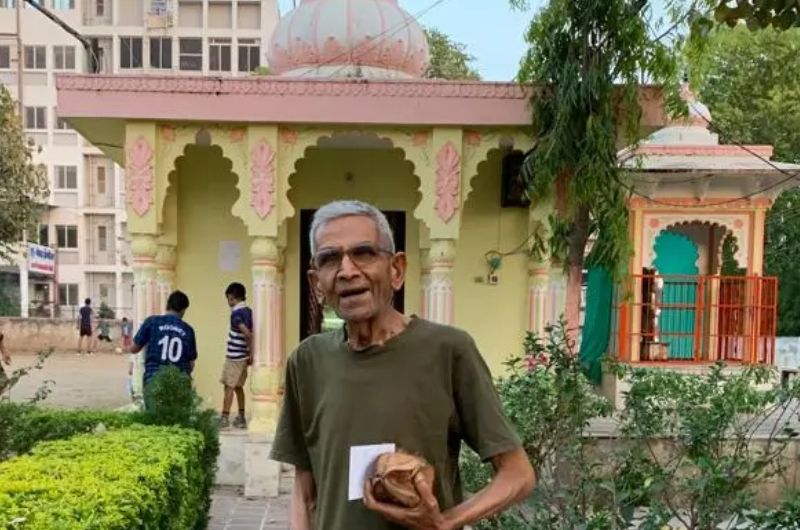Kishore Saint passed away on the morning of the 15th August in his home in Udaipur. He came to Udaipur at the behest of Dr Mohan Sinha Mehta to head the Vidya Bhawan Rural Institute in 1972. He then went on to be the chief executive of Seva Mandir, a voluntary organisation in Udaipur, for many years. He left Seva Mandir in 1983 to create a tribal-led institution called Ubeshwar Vikas Mandal. Ajay Singh Mehta pays a tribute
Kishore Saint was 90 years old when he passed away. He is survived by his wife Sudesh-ji and two children, Tarun and Amita, son-in-law Roopen Arya and grandson Karan Arya.
Kishore-bhai was a nationally and internationally known Gandhian thinker-practitioner. He was friends with people like Ashok Chatterji, a pioneer in the field of design and development communication, and Ashish Kothari, an innovative environmental activist and author. He was a close member of the Lokayan/ CSDS group that consisted of public intellectuals like Rajni Kothari, D.L. Sheth, Asish Nandy, Smitu Kothari and Vijay Pratap. He brought Kamla Chowdary, head of the National Wasteland Development Board, Chandi Prasad Bhatt, Sundar Lal Bahuguna and Anil Agarwal to visit Udaipur to support a people’s movement to afforest degraded lands.
Kishore-bhai spent his life implementing Gandhian ideas, advocating for local self-governing institutions of tribals and local people. He was a patron of local culture and spiritual practices. He deeply respected their ethical outlook to nature. He would host the performance of Gavri, a 40-day tribal dance ritual in praise of Shiv-Parvati, in Udaipur City to make urban people aware of the richness of tribal culture.
Despite many odds and disappointments in his life, Kishore-bhai never gave up his faith in the wisdom and integrity of local communities and Gandhian thought. He bore no bitterness towards those who had wronged him. He was a man of great refinement and compassion.
Towards the end of his life he wrote his memoirs. He was born in India in a village in West Punjab that is now in Pakistan, lived through the Partition, almost losing his brother, grew up in Kenya, studied in England, taught at Friends World College, a Quaker college in New York City running global programming. In 1972, he came to India to keep alive the traditions of constructive work and Gandhian thought. He was fluent in Urdu, Hindi, English and Punjabi. He was deeply interested in Urdu and would often quote couplets as per occasion. In his last years, he taught countless students about Gandhian thought.
People gravitated towards Kishore-ji for good reason. True to his name he displayed a child-like curiosity towards life and this showed clearly in the way he always showed a genuine interest in every person he met. He had an infinite capacity to give of himself and shared of himself to everyone alike. Each person would know and feel that they were important to him and that he valued them.
Kishore-bhai belongs in the league of Sarla Behn, Chandi Prasad Bhatt and Sundarlal Bahuguna as pioneers in protecting the environment and believing that grassroots work is the key to making our society decent, self-governing, and democratic. His legacy in Seva Mandir of seeing development in ecological terms and self-governing communities endures.
In the Past few years, Kishore-bhai increasingly turned his energies to the urgent problem of climate change at the global and local level, a theme that embodies his lifetime concerns regarding nature and communities. Well into his old-age, he engaged and challenged as many youth as he could to think with full attention and engage the world, to understand and act. He was a person ahead of his times. A tragic hero in some ways. He has left us all with a great responsibility – to feel the crisis that is on hand and face it with all our best efforts.
Bichhdā kuchh is adā
se ki rut hī badal gaī
ik shaḳhs saare shahr ko vīrān kar gayā
(Khalid Sharif)
Translation:
He parted in such a way that the season has changed
A whole city stands deserted by one man’s departure
(Courtesy: Vikalp Sangam/ Alternatives Confluence)
October – December 2022



 from Webdoux
from Webdoux